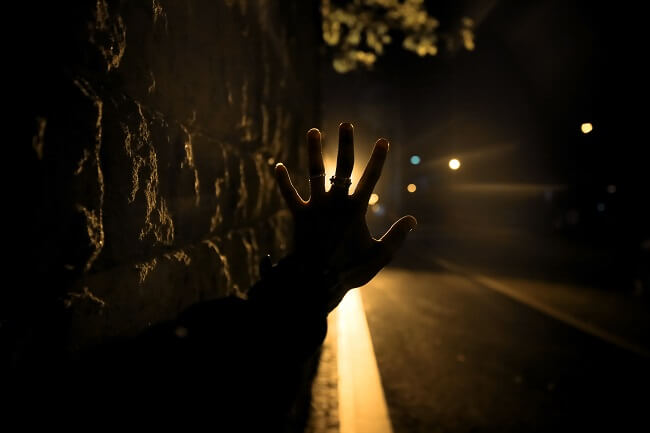
photo cred. Habeshaw on unsplash
For years I lived my life in excrutiating emotional pain due to the self-destructive choices and struggles of one of my daughters. She suffered with mental health challenges and the accompanying fall out. My life was turned upside down by the repercussions. If this describes your present reality, then this blog is for you.
Does your child have an eating disorder but refuses help? How do you bear the misery of watching them destroy themselves one more day? Are they in denial about their alcohol or drug use? Do they refuse meds for depression or a mood disorder (i.e. bipolar, anxiety, etc.)? You may feel like you need to take them yourself (and maybe you do–there’s no shame in that). Do they keep getting in trouble with the law–DUIs, shoplifting, possession/selling drugs–and expect you to bail them out? After awhile we reach a breaking point. We can’t take the chaos and heartache any more or we’ll lose our sanity. Some days we feel like we’re going crazy.
You are not alone.
Dear mom or dad, your feelings are normal. You are not going crazy–I promise.
You are not a bad parent.
Shake off the guilt. None of this is your fault.
Take a minute to step back and look at your responses. Are you doing tasks for your child that they could and should be doing for themselves? I understand. Fear is a powerful emotion. It drives us to feel like we have to step in and do something and this is even more complicated if the child in question is a minor or if your child has a child who’s being affected by their choices. We do have more responsibility with a minor, but we still don’t have to do as much we tend to. I know. That was me. Sometimes it still is. Anxiety and worry can drive me to be overly involved in my daughter’s problems. But I have come to realize that when I do that, in the end, I feel even more crazy. No one wins. My attempts to help don’t really help. Once the crisis is averted, our kids return to their former behaviors. It’s insanity!
Al-Anon defines insanity as “doing the same thing over and over again, expecting a different result.”
Rethinking Responses

photo cred. James Hose Jr. on unsplash
Is that you? What’s wrong with us? Let’s get smart and rethink our responses. Let’s strengthen ourselves so we can pull back and let our children experience natural consequences. Our hope is that they will begin to take some ownership of their problems. My guest blogger from last week’s post Cathy Taughinbaugh talked about the benefits of natural consequences.
A book that has been a tremendous help to my husband and me is Setting Boundaries with Your Adult Children by Allison Bottke. Don’t let the title fool you. Her book is still a huge help even if your child is an adolescent. Bottke strongly affirms the benefits of support groups. We need the wisdom, strength, and encouragement of other seasoned parents. Stopping our over-helping and enabling behaviors requires a lot of courage most of us don’t have on our own.
Be Prepared
In most families, one parent is usually weaker than the other and tends to give in more easily (we took turns). We discovered a good practice was to be prepared. We decided what our responses would be ahead of time for different situations that might occur. This way we already knew how we would answer a request; what we would or would not do. When the time came for a hard decision, could remind each other what we decided. We could help each other be strong.
Another issue is that enabling or over-helping feels loving…and sometimes it is…but often it’s not. When our children have the challenges I mentioned, our responses are different than if there were no issues. There’s nothing wrong with being kind and giving under normal conditions. But it’s unhealthy for our troubled children and for us.
“Let’s go ahead and give them money for one more month’s rent.” “Oh honey, can’t we bail her out again? She promised to do better!” “I just can’t stop _______________. I’m too scared what might happen!” What if________________?? I couldn’t forgive myself.”
One way to know if we’re over-helping is to ask ourselves if we feel angry or resentful after we helped? If the answer is yes, then maybe it’s time to make some changes? How do we love and maintain the relationship yet not become part of the problem? Finding the answer is difficult. There’s no simple solution.
Outside help from others who have walked in our shoes is invaluable. Learning from them can guide us in our decisions. No longer enabling hurts us much more than it hurts our child. They can’t understand our decisions. They may feel like we don’t care, but in the end we need to trust God with our sons and daughters. He loves them far more than we do. We can put them in His hands and rest in Him.
When we get out of God’s way He can step in and go to work.
If your situation is a real crazy-maker, what you can stop doing (or do differently) today that might help you begin to regain your sanity tomorrow? Not sure? Ask another parent who has walked a similar path or a counselor and don’t forget God. He wants to help too.
Just because your child isn’t in their right mind, doesn’t mean you have to lose yours!

photo cred. Dena Yohe
However, we can’t do this in our own strength. For me, I needed to rely on God to give me the strength I lacked. I like the Bible verse that says, “It is God who arms me with strength” (Psalms 18:32).
I don’t know about you, but I sure need God’s supernatural strength. How reassuring to know that He will provide what I lack. No more insanity for me. What about you?

Thank you so much for posting. It has nourished my soul and affirmed my decision to set boundaries with our adult son who is now incarasided again due to the addiction and bipolar coaccuring.
Barbara, we are so sorry about your son’s situation, but you are doing the right thing to have the boundaries you need. May God continue to nourish your soul and affirm your healthy decisions. And may He work in your son’s heart to bring him to the place of full surrender, ready for lasting change.
Warmly, Dena.